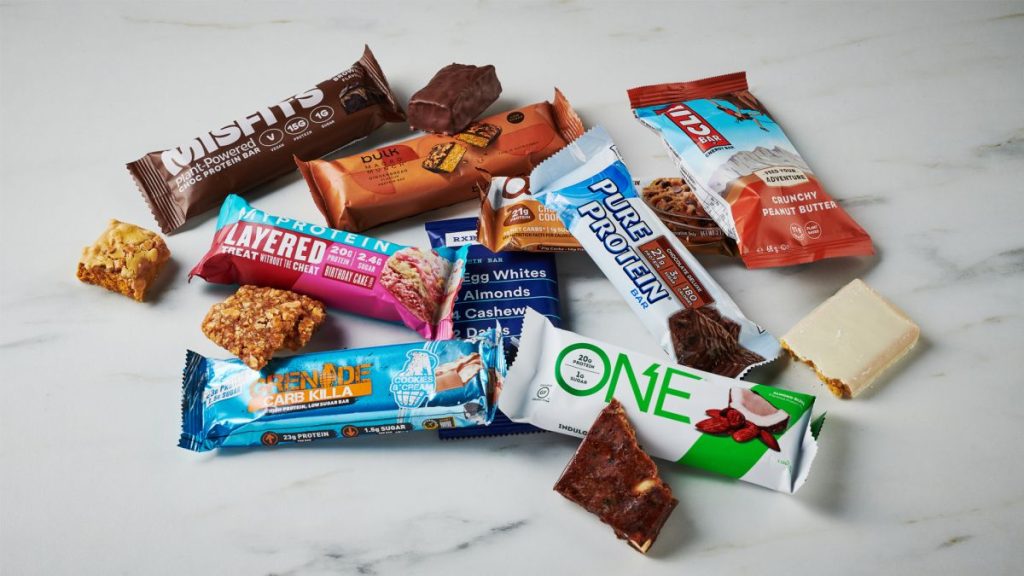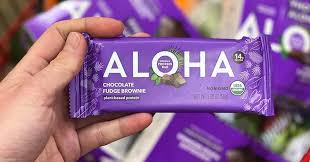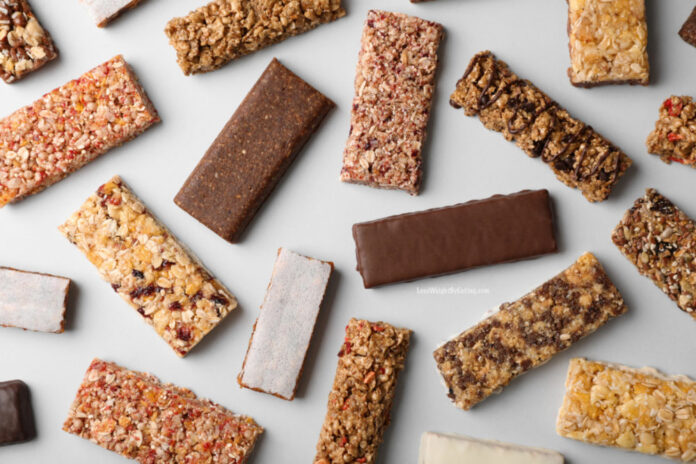Whether used as a meal replacement or an on-the-go snack in between meals, protein bars are a well-liked and efficient source of nutrition. Due to their protein and other nutritious content, protein bars are usually consumed. Additionally, they are quick and simple to consume while leading an active lifestyle. Given the vast range of protein bars available in the grocery store, it is essential to understand that they are not all created equal and that many aren’t even nutritious. Although some bars claim to be protein bars, they contain more carbohydrates than protein. Protein bars make an excellent snack when you don’t have much time or a big appetite. Numerous options of protein bars for weight loss are available today, making it challenging to find the best one. While many protein bars are fancy candy bars with plenty of sugar, saturated fat, and only a few grams of protein, some are comparatively healthy. The top five nutrients to consider while choosing a protein bar are listed below.
Table of Contents
Count Calories in total in protein bars
Your expected use for the bar (snack, meal replacement, etc.) and the total grams of protein it contains should determine how many calories or energy the bar offers. Usually, protein bars with between 150 and 250 calories are acceptable choices. So what and how do you count?
- Protein
When choosing a protein bar, most individuals first look at the amount of protein. How much, though, is enough? As an in-between-meal snack, roughly 10 grams should be sufficient. However, bars with more than 20 grams of protein per serving are ideal for individuals who indulge in intensive strength training.
As a rule of thumb, a bar that includes >25% of its total calories from protein is usually appropriate. For example, if a protein bar has 150 total calories and 10 grams of protein, around 26% of the calories in the bar come from protein (10 grams x 4 calories/gram = 40 calories/150 calories). But only around 21% of the calories in a bar with 220 calories and 12 grams of protein would come from protein.

-
Unhealthy Fat
There is a lot of saturated fat in protein bars. Saturated fat, a food that can raise your LDL (“bad”) cholesterol levels and increase the risk of developing heart disease, is already abundant in the typical American diet. You should follow recommendations similar to these when choosing a protein bar from the Dietary Guidelines for Americans, which advises are ingesting no more than 10% of your daily calories from saturated fat. For instance, the proposed guidelines are not followed by a protein bar with 150 calories and 3 grams of saturated fat (9 calories/gram of saturated fat). Nearly 20% of the calories in this protein bar come from saturated fat. But a bar with 200 calories and only 1.5 grams of saturated fat would be a better option because it only contains 6% of calories from saturated fat.
-
Sugar
Although they are a source of calories, added sugars offer very few nutrients. Avoid candy bars marketed as protein bars by choosing ones with less than 6–8 grams of added sugar instead. The bar will likely contain more sugar than is advised if “sugar,” “sucrose,” or “high-fructose corn syrup” is one of the first critical components stated on the label (listed after “ingredients”).
-
Fiber
If you use a protein bar as a snack or a meal replacement, fiber—a carbohydrate that keeps you satiated for longer—is a crucial ingredient. A wise recommendation to heed is to select a protein bar with at least 3 grams of fiber. But be careful: If you don’t currently fulfill your requirements for fiber, some protein bars’ high fiber content could make you feel uncomfortable (bloating, gas, and so on).
Pick the best protein bars for weight loss to increase your vigor while on the road.
1. Quest Protein Bar
Our selection of the top protein bars for weight reduction is headed by Quest Bars, which are available in a wide range of tastes. These delightful protein bars can help individuals trying to lose weight because they include 21 grams of protein per bar and are low in sugar and carbs. Quest Bars have a lot of protein, keeping you full and stopping cravings. They can also serve as a nutritious swap for candy bars. Quest Bars also contain less sugar alcohol, which is advantageous for weight reduction and general health since foods with a lot of sugar alcohol can make you feel bloated and unwell.
2. Pure Protein Bar
Since Pure Protein bars are made to support lean muscle and an active lifestyle, bodybuilders frequently turn to them for strength-building. The most excellent alternative to consider if your objective is to develop muscle mass is Pure Protein Bars, which include 20 grams of protein, 17 grams of carbohydrates, and 2 grams of sugar per bar. Additionally, the low sugar content prevents energy slumps before or after a workout.
3. Orgain Protein Snack Bar
With just 150 calories per bar, Orgain Protein Snack Bars are vegan-friendly, made with plant-based protein, and have a highly low-calorie content. You can feel equally good about including these vegan protein bars in your diet because they are manufactured with ingredients that are genuinely excellent for you, such as brown rice protein, and are non-GMO and USDA-certified organic. Given that they only include 10 grams of protein per bar, Orgain Protein Snack Bars are an excellent pre-or post-workout snack. However, they may not be able to replace a full meal.
4. Power Crunch Protein Energy Bar
It’s hardly surprising that Power Crunch whey protein bars rank as our best-tasting protein bar, given their selection of 14 distinct flavors. Power Crunch provides a flavor to suit every palate, whether you’re in the mood for Chocolate Mint, French Vanilla, or Lemon Meringue. While these delicious energy bars don’t have the lowest carbohydrate level (about 11 grams per bar), they have a lower fat content (14 grams per bar), making them an excellent option for folks following a keto or higher-fat diet.
Their macronutrient composition, which includes protein, fat, and carbs, is roughly equal. Additionally, they don’t contain sugar alcohols like erythritol, frequently seen on the ingredient lists of protein bars that some individuals try to avoid. This is because sugar alcohols, such as erythritol, may adversely affect the gastrointestinal system. Power Crunch bars are ultimately amusing since they make us think of our favorite childhood sweets.
5. ALOHA Protein Bar
ALOHA organic protein bars are the healthiest option on our list of the best protein bars since they use the fewest substances possible in their production. ALOHA snack bars are almost 100% organic and packed with brown rice protein, pumpkin protein, cashew butter, and natural tastes. They also meet a wide range of dietary requirements because they are vegan, soy, gluten, and dairy-free. You may feel good about purchasing ALOHA bars because they are a recognized B Corp firm that also contributes to the community and environment. There are several taste possibilities, including Caramel Sea Salt, Lemon Cashew, Vanilla Almond Crunch, and Cashew Cashew.

6. Think! High Protein Bars
Dieters who avoid gluten will enjoy this! High protein bars, available in eight delectable flavors, contain 20 grams of protein in each bar to help you feel full. These non-GMO, gluten-free protein bars range from White Chocolate to Chocolate Fudge and are made with soy protein, whey protein isolate, and non-GMO components. The best thing is that each bar contains 0 grams of sugar, making them an excellent option for anybody watching their sugar intake. The abundance of protein also causes consideration! High protein bars are a perfect choice for pre-or post-workout nutrition.
The reasons protein bars for weight loss are regarded as beneficial.
There are several reasons why protein bars for weight loss are regarded as healthy. They can assist in reducing cravings and reducing appetite, which is beneficial for those who are busy and don’t have time to sit down and have a full meal. Protein bars can help prevent or delay cell damage because of their antioxidant effects. Homocysteine is an amino acid used to form proteins, and having too much of it might raise your chance of developing heart disease. Also, high homocysteine levels indicate a vitamin deficit that may call for dietary adjustments or multivitamin supplements.
You can improve your protein consumption by eating protein bars, which can lower your risk of acquiring diabetes. This is because consuming more protein helps you control your blood sugar. This is only accurate for high-protein bars also high in fiber, though. On the other hand, high-fat, low-protein snack bars have the opposite effect and may even raise your blood sugar levels. It’s always a good idea to speak with a certified dietitian or nutritionist about your health objectives if you’re still wondering how protein bars affect your nutritional requirements.
In conclusion, finding an excellent protein bar for weight loss might not be simple, but your search should be worthwhile with these pointers in mind. It is up to you whether or not to incorporate protein bars into your diet, but there are several advantages to doing so. Remember to carefully read the protein bar nutritional labels before purchasing one, and be aware of the components!












